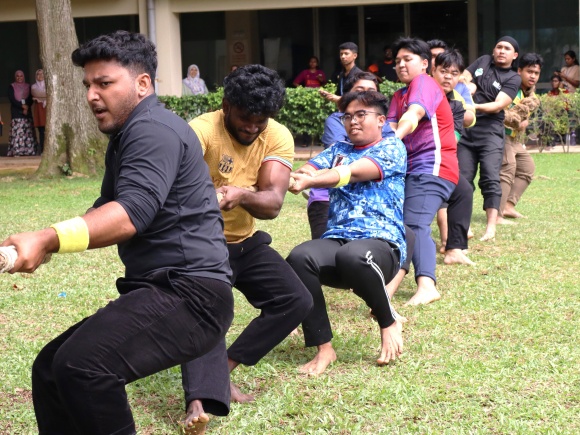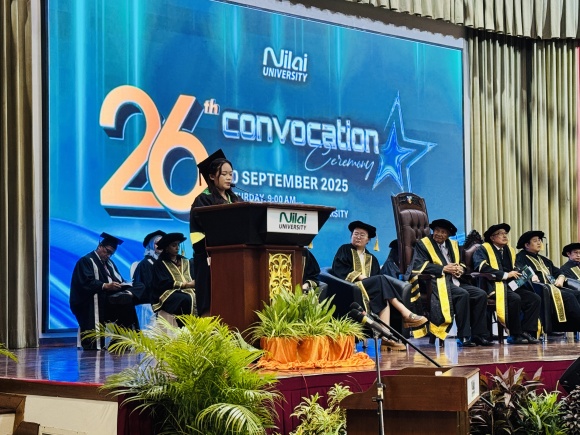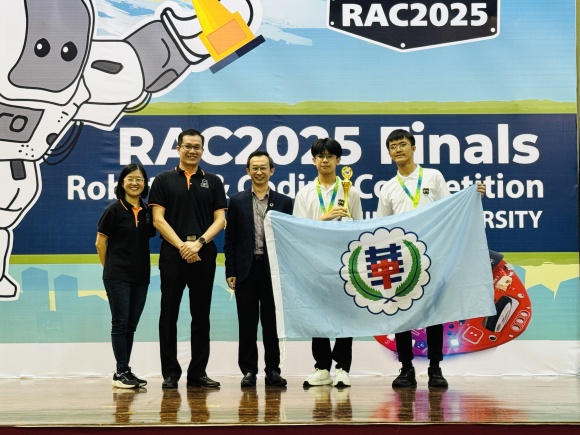
More than a decade ago, Malaysia embarked on a profound quest to make the biobased industry as the key economic driver by 2020. Ambitious plans were mapped out and, beyond 2020 Malaysia expects to produce at least 20 global companies to spearhead the value creation process for the bio-based industry (Source: NST, Jan 2018). Biotechnology offers natural solutions that benefit in four major industrial areas, including health care, agricultural, food and environmental uses, in the meantime sustaining the commercial and ecological landscape expected to improve human lives.
What is biotechnology?
Dr Ng Shee Ping, the Head of School of Applied Sciences, explained that the term biotechnology refers to the technology that exploits biological systems to generate products or applications which improve human wellbeing. In fact, biotechnology is not a new hype. “The School of Applied Sciences at Nilai University offers broad-based undergraduate programmes for biotechnology and research-based postgraduate programmes in applied sciences,” informed Dr Ng.
Students who have completed their SPM may first enrol in the Foundation of Science programs and then pursue their degree, and in opting so, they will complete their degree in 4 years. If students pursue the Diploma in Biotechnology at Nilai University, they can get an exemption of up to 31 credit hours in the Bachelor of Science (Hons) Biotechnology programme. Hence, under normal circumstances, students will graduate with a diploma and degree within 4 ½ years.
The minimum entry requirement for local students to pursue the Diploma in Biotechnology is as listed:
- SPM/ O-level—3Cs
- UEC—3Bs
- SKM/SKK (MQF Level 3) in a related field - Pass and pass SPM with 1C
- Certificate (MQF Level 3) in a related field—CGPA 2.0
In the 2 ½ years diploma, students will be exposed to various disciplines in biotechnology, and they will gain the knowledge in agricultural, industrial , medical, marine and environmental biotechnology and practical skills in biology, chemistry, microbiology, genetics, molecular biology bioinformatics and cell and tissue culture techniques. Should students seek employment after completing their diploma, the courses undertaken will give them a solid footing in the 4 major industries mentioned earlier.
If students opt to pursue the Bachelor of Science (Hons) Biotechnology after their diploma, they are entitled to some course exemptions for the first year which means they may directly enrol for their sophomore year courses in the degree programme.
The biotechnology degree programmes uniquely incorporate electives in business, communications, marketing, accounting and management. “With the best of both worlds; science and business, we hope that our graduates will excel in the global bioeconomy initiatives outlined by the Malaysian government. It will allow our graduates the flexibility to switch in an ever challenging business landscape,” declares Dr Ng.
“Students who have completed their foundation in science will study the basic subjects of biological sciences. The basic courses serve as a strong base to prepare them for the courses in the subsequent years” explained Dr Ng.
“As students advanced to their third year, practical skills will be emphasised; especially lab-based courses such as Cell and Molecular biology laboratory as well as Immunology Technique in Biotechnology. In addition, students will carry out a supervised final year research project through the Research Methods and Design and Capstone courses. Essentially, we train students to conduct their research through methodological research skills,” uttered Dr Ng.
Both graduates in the diploma and degree programmes would undergo a 4-month internship programme. “An internship tutor will guide the final year students to prepare their resume when students apply for internship placement. Endowed with the freedom to choose their preferred industry, students will learn to be discreet about their career choices. This is because the multi-disciplinary nature of both the diploma and degree programmes allow our students the flexibility to do so,” said Dr Ng. Students can expect to jump-start their careers as technical executive, science laboratory technologist, research scientist, quality assurance or quality control executive, educators, service analyst and product specialist.
As science advances and evolves, so will the field of biotechnology. It is an endless loop! Graduates who are charting their careers towards leadership roles, ought to consider pursuing their postgraduate study. Nilai Univerisity offers a full research-based Masters of Applied Sciences and Doctor of Philosophy (Applied Sciences) for those who aspire to move towards leadership roles within the higher education or professional sector in the field of applied sciences. These programmes provide an opportunity for candidates to strengthen their capacity to conduct any research within their area of interest such as Agricultural Science, Biochemistry, Biology, Bioresource Technology, Chemistry, Herbal Medicine, Microbiology, , Material Science and Nanotechnology.
For further information, please call 06-850 2308 for an appointment with our education counsellors or e-mail [email protected] or visit Nilai University’s Facebook page at https://www.facebook.com/NilaiUniversity/ or its website at www. nilai. edu. my. We are open for consultation during our office hours, Monday till Friday (9 am till 5 pm).
Read Online: PressReader.com



